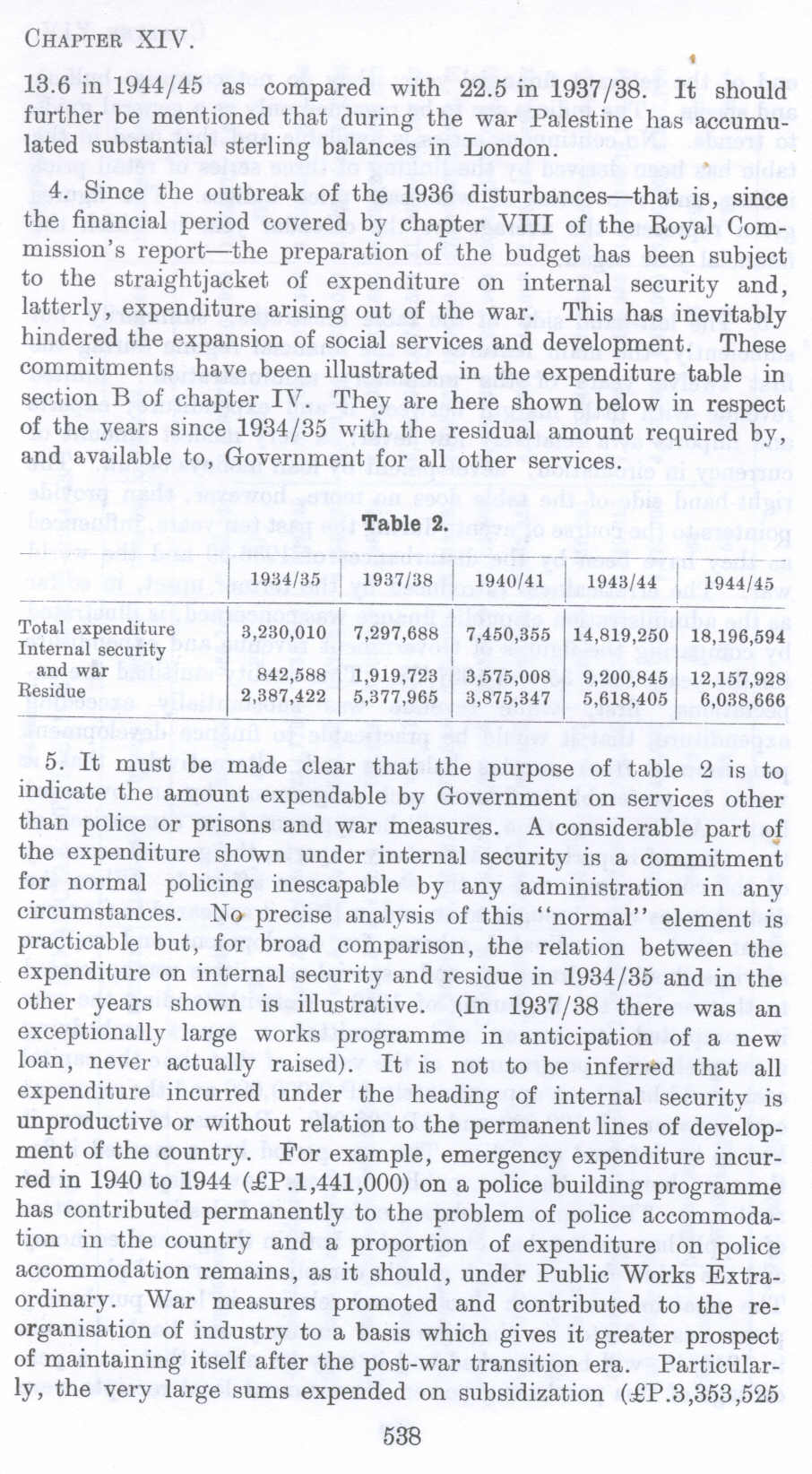| Prev | Next |  |
| Prev | Next |
| PalestineRemembered | About Us | Oral History | العربية | |
| Pictures | Zionist FAQs | Haavara | Maps | |
| Search |
| Camps |
| Districts |
| Acre |
| Baysan |
| Beersheba |
| Bethlehem |
| Gaza |
| Haifa |
| Hebron |
| Jaffa |
| Jericho |
| Jerusalem |
| Jinin |
| Nablus |
| Nazareth |
| Ramallah |
| al-Ramla |
| Safad |
| Tiberias |
| Tulkarm |
| Donate |
| Contact |
| Profile |
| Videos |
Total Expenditure of Palestinian Government on Internal Security and War Residue before 1948 (Nakba), British Mandate: A Survey of Palestine: Volume II - Page 538. Chapter XIV: Finance: Section 1: The Budget: Table 2: |
Disclaimer
The above documents, article, interviews, movies, podcasts, or stories reflects solely the research and opinions of its authors. PalestineRemembered.com makes its best effort to validate its contents.


Post Your Comment
*It should be NOTED that your email address won't be shared, and all communications between members will be routed via the website's mail server.
13.6 in 1944/45 as compared with 22.5 in 1937 /38. It should further be mentioned that during the war Palestine has accumulated substantial sterling balances in London.
4. Since the outbreak of the 1936 disturbances-that is, since the financial period covered by chapter VIII of the Royal Commission's report--the preparation of the budget has been subject to the straightjacket of expenditure on internal security and, latterly, expenditure arising out of the war. This has inevitably hindered the expansion of social services and development. These commitments have been illustrated in the expenditure table in section B of chapter IV. They are here shown below in respect of the years since 1934/35 with the residual amount required by, and available to, Government for all other services.
Table 2.
I 1934/35 I 1937/38 1 m~ •1--;-943/44 l--;-~44/45 •
لإotal expenditure Internal security and war Residue
13,230,010 17,297,68817,450,355114,819,2;0118,196,594 842,588 1,919,72313,575,008 9,200,845 12,157,928 2,387,422 5,377,965 3,875,347 5,618,405 6,038,666
5. It must be made clear that the purpose of table 2 is to indicate the amount expendable by Government on services other than police or prisons and war measures. A considerable part of the expenditure shown under internal security is a commitment for normal policing inescapable by any administration in any circumstances. No precise analysis of this "normal" element is practicable but, for broad comparison, the relation between the expenditure on internal security and residue in 1934/35 and in the other years shown is illustrative. (In 1937 /38 there was an exceptionally large works programme in anticipation of a new loan, never actually raised). It is not to be inferred that all expenditure incurred under the beading of internal security is unproductive or without relation to the permanent lines of development of the country. For example, emergency expenditure incurred in 1940 to 1944 (£P.l,441,000) on a police building programme has contributed permanently to the problem of police accommodation in the country and a proportion of expenditure on police accommodation remains, as it should, under Public Works Extraordinary. War measures promoted and contributed to the reorganisation of industry to a basis which gives it greater prospect of maintaining itself after the post-war transition era. Particularly, the very large sums expended on subsidization (£P.3,353,525
538